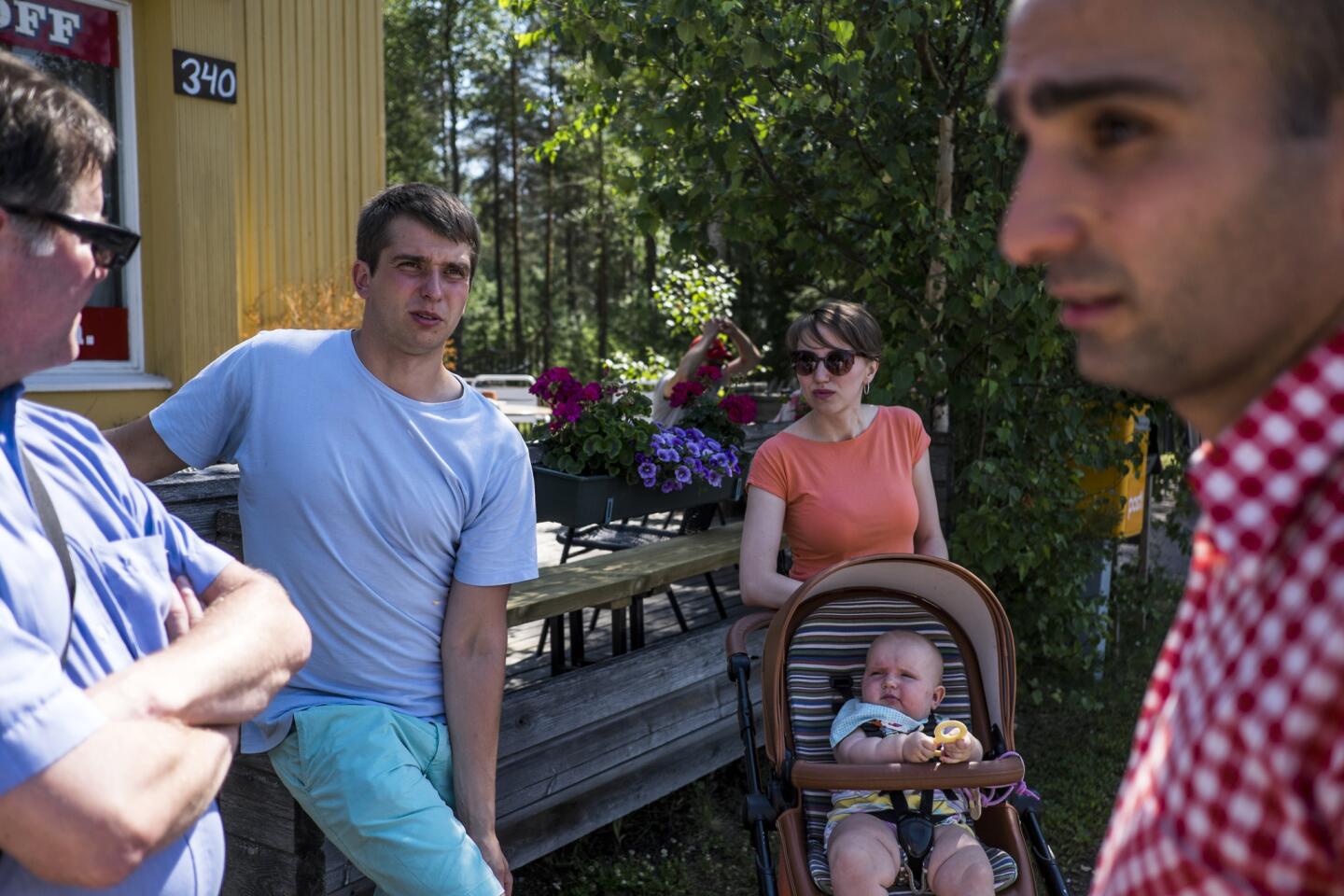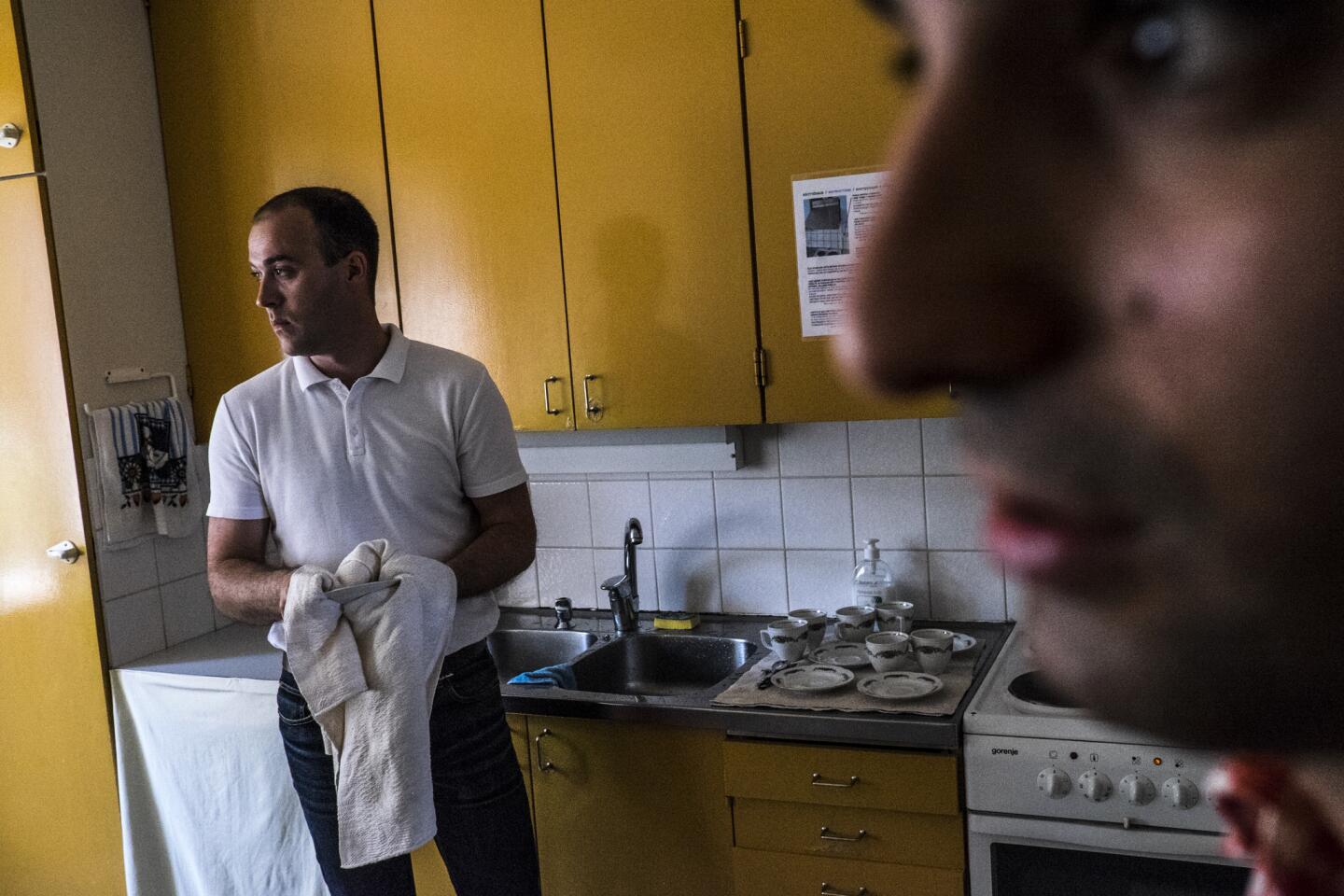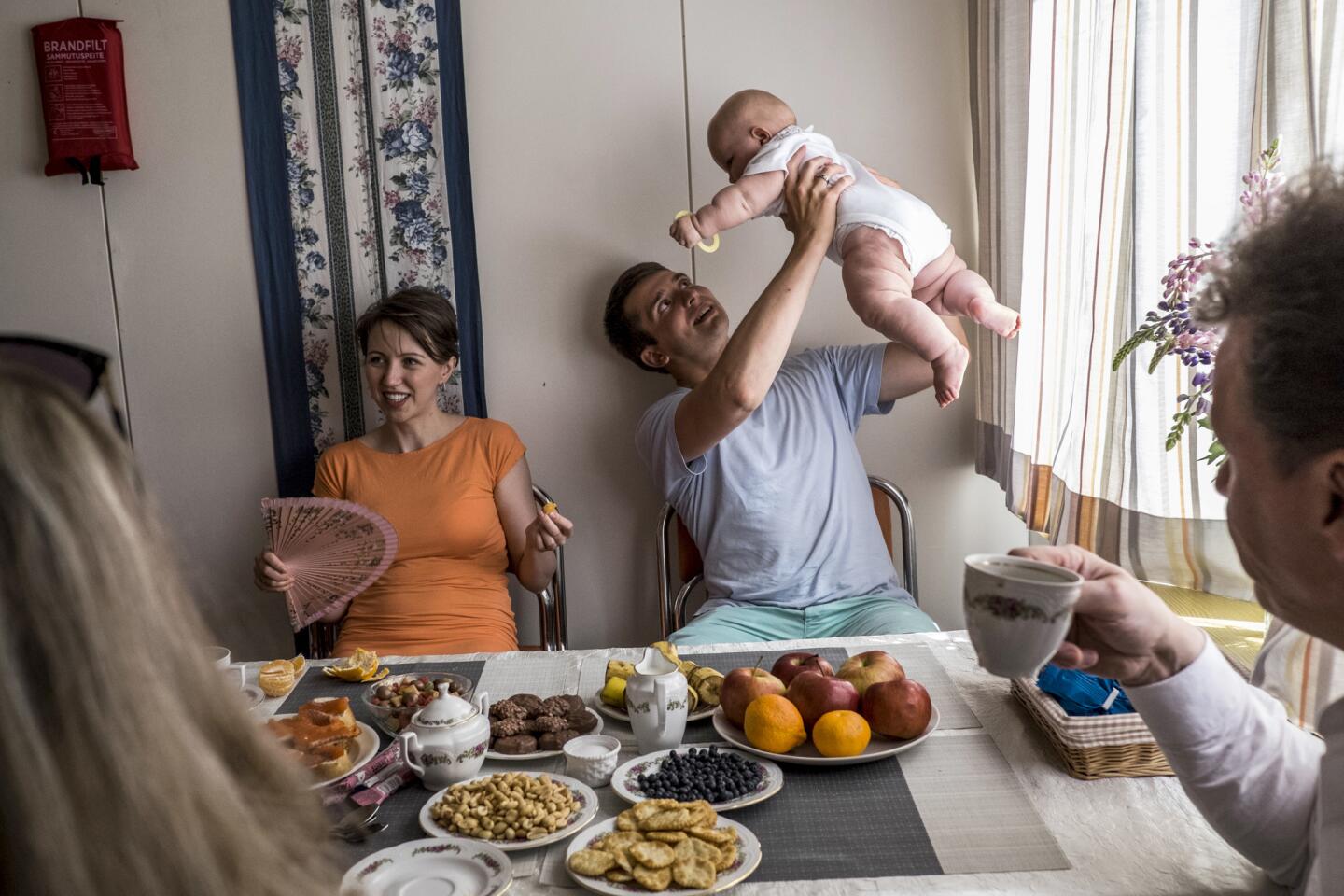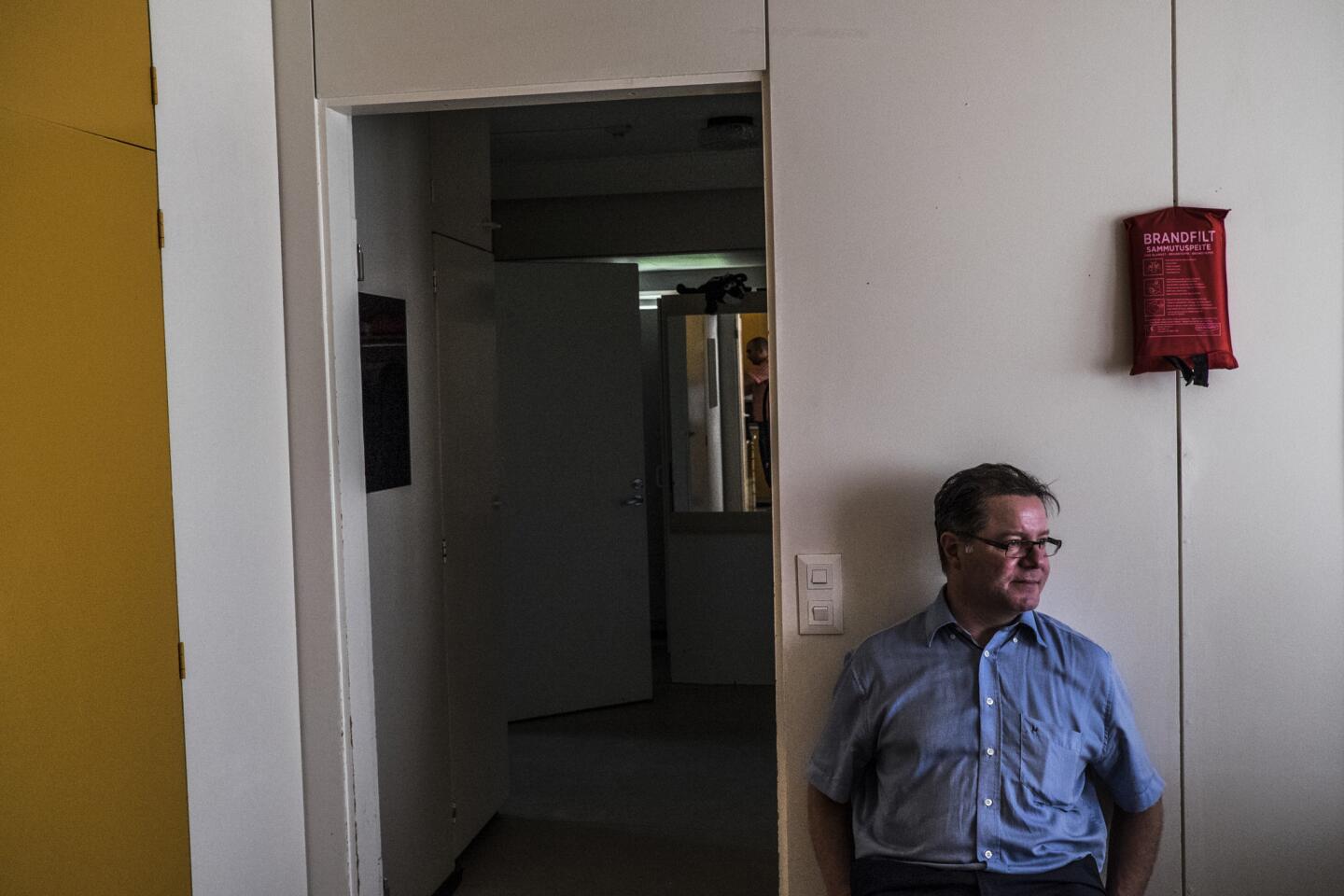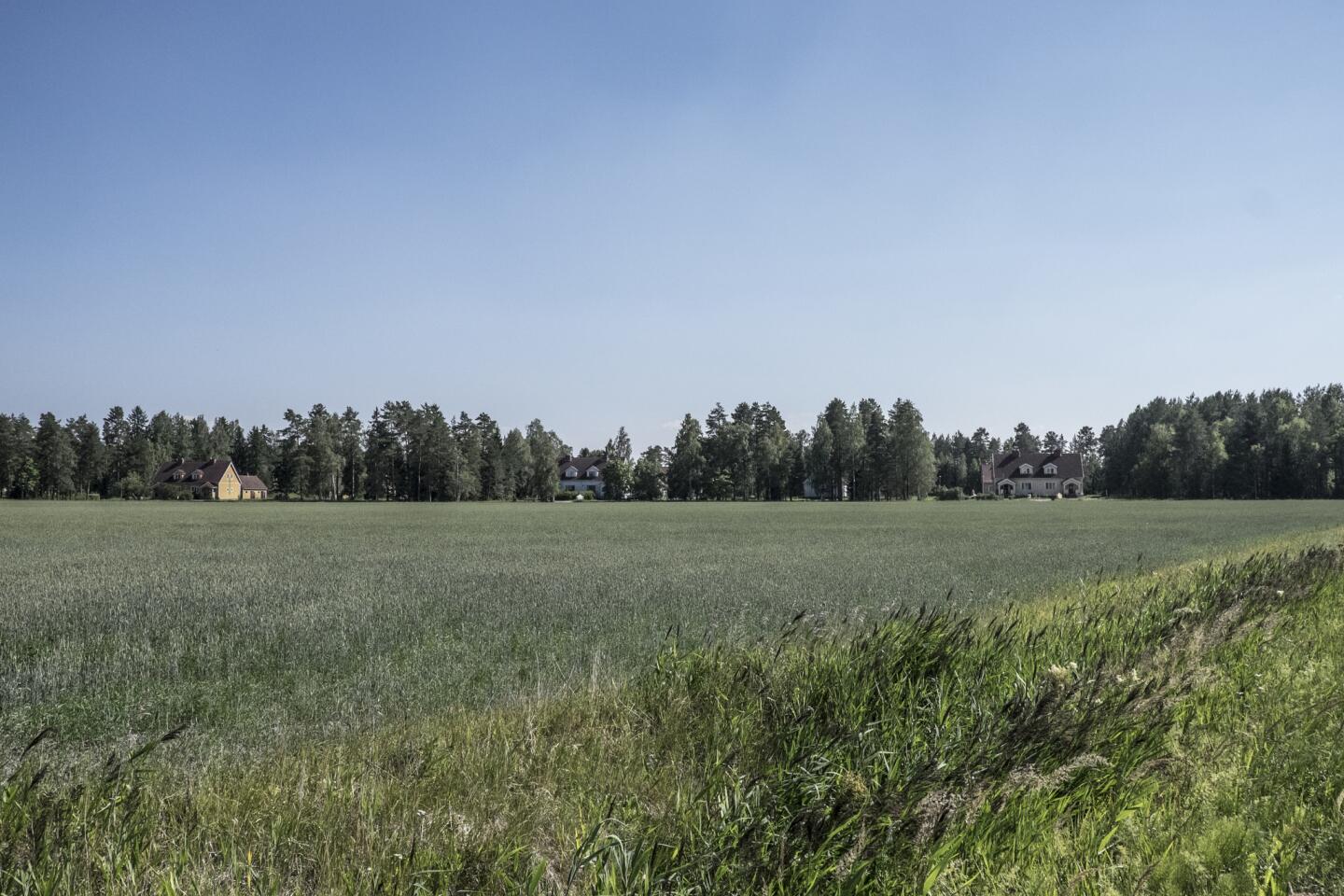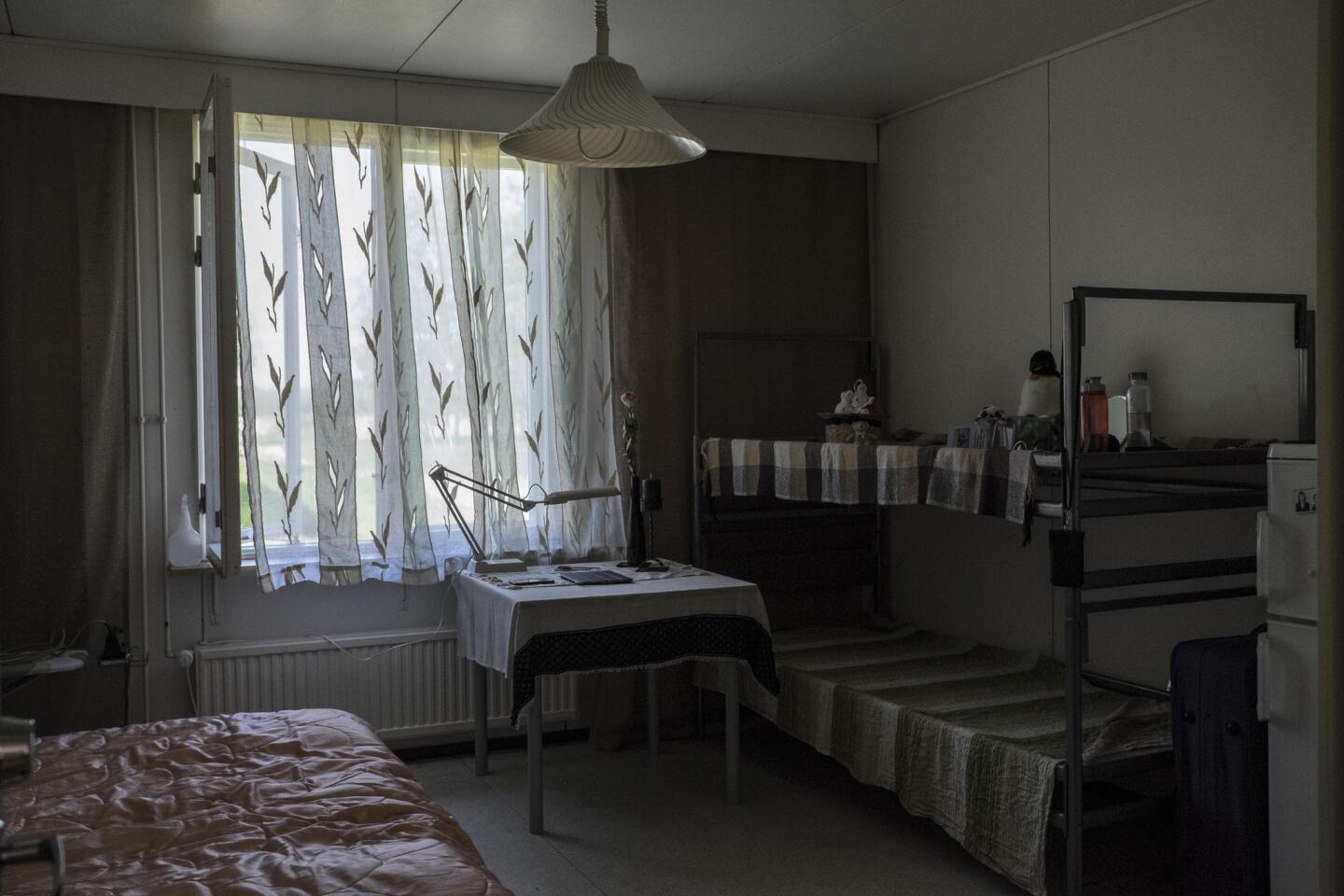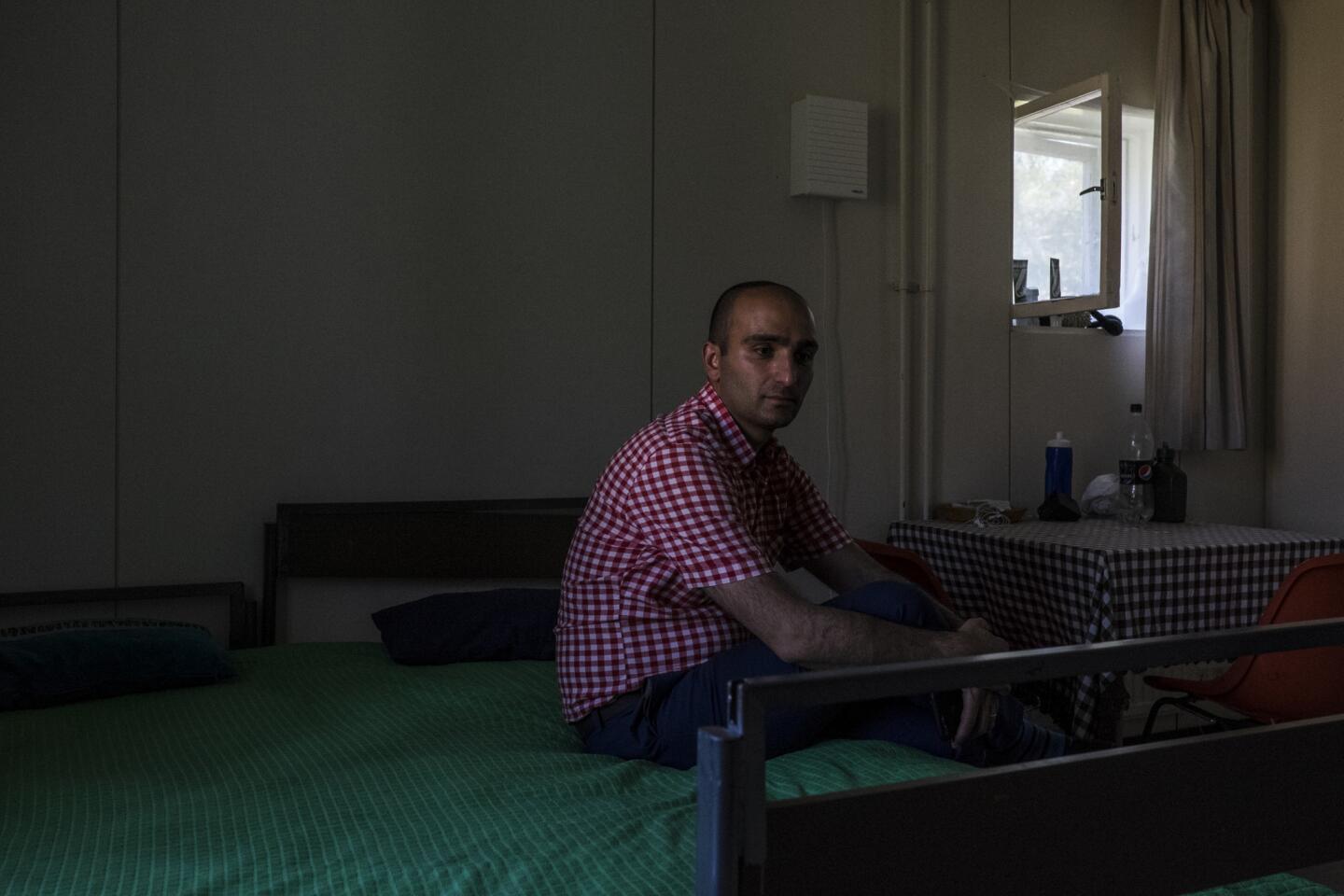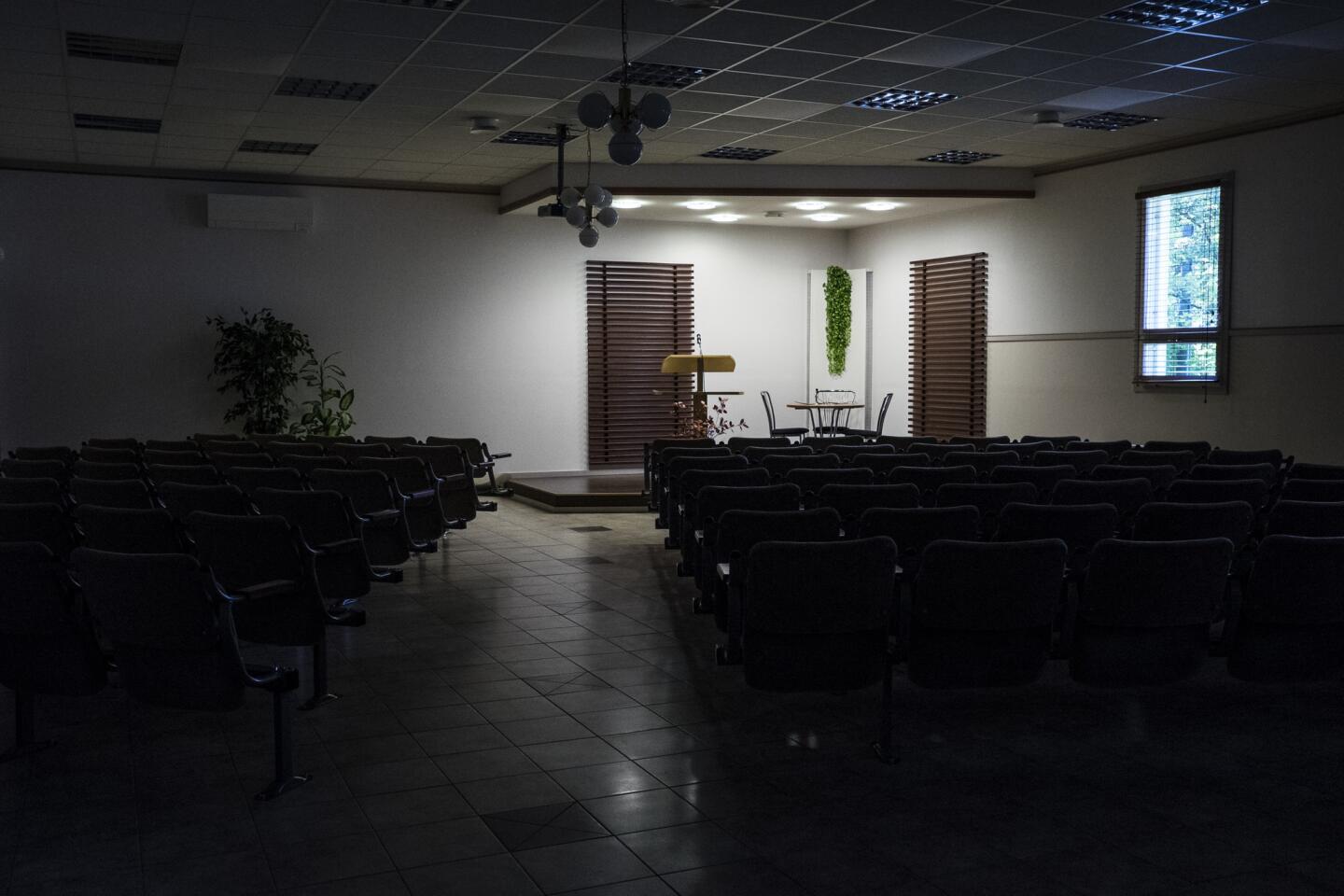Facing religious persecution in Russia, Jehovah’s Witnesses find refuge in Finland
- Share via
Reporting from KONNUNSUO, Finland — On Thursdays and Sundays, a van arrives near an old prison to take the Jehovah’s Witnesses to worship in a Kingdom Hall about six miles away. The irony is palpable: The Finnish prison and its surrounding workers’ cottages are serving as a temporary home for people fleeing persecution — and possible prison terms — at home in Russia.
The van winds its way along a scenic road toward the little town of Joutseno, past farmhouses and vacation cottages that draw tourists to this part of Finland’s southern lake country each summer.
Last year, the church in Joutseno started conducting services in Russian to accommodate the growing population of asylum-seekers. Jehovah’s Witnesses, a Christian denomination started in the United States in the 19th century, are now banned in Russia.
“When we arrived at the hall for the first time, we cried because we could freely sing our songs and pray,” said Alina, 35, who fled with her husband in May from Orenburg, a Russian city about 900 miles southeast of Moscow, near the border with Kazakhstan. They asked that their last name not be used out of fear for relatives left behind in Russia.
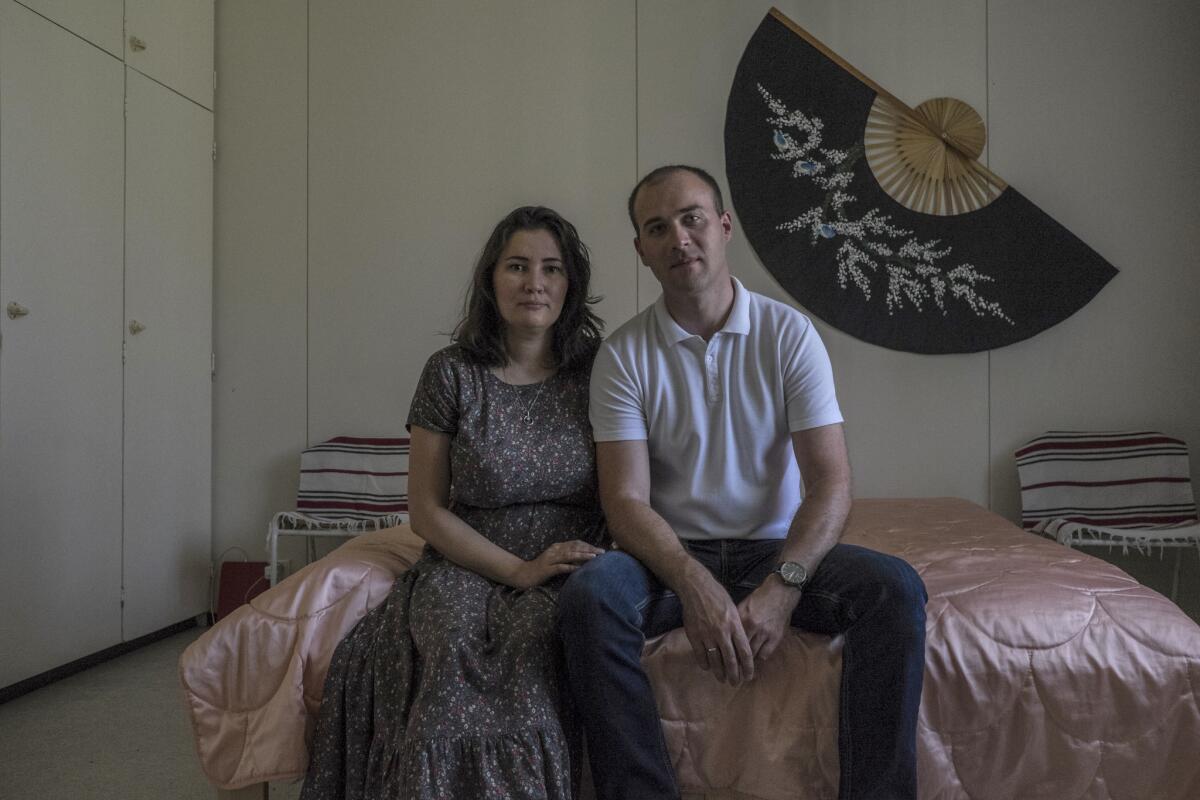
“Right now, to be a Jehovah’s Witness is a crime in Russia,” she said. “You’re considered like a terrorist.”
In the 16 months since Russia’s Supreme Court banned Jehovah’s Witnesses as an extremist group on par with Islamic State, raids and arrests of the religion’s estimated 175,000 members in the country have increased rapidly. The ruling criminalized practicing the religion and ordered its 395 branches closed. Members face prosecution for doing missionary work, a fundamental part of the faith.
There are now an estimated 250 Russian Jehovah’s Witnesses seeking asylum in Finland. They wait out their asylum applications in several refugee centers across the country, including the Joutseno refugee center outside Lappeenranta in southeastern Finland.
The center has about 80 Jehovah’s Witness families from Russia.
Alina and husband Daniel have a room in a brightly painted wooden cottage that once housed workers at the former Konnunsuo prison down the road. They share it with another family of Russian Jehovah’s Witnesses, Alin and Yulia Tovmasian and their son, David.
During Finland’s long summer days, the children ride bikes around the property while the adults stroll the nearly empty streets in this remote but scenic part of the country. Sometimes there’s a bus to take refugees to swim in one of the nearby lakes.
There’s one cafe within walking distance of the cottages. At night, the families prepare meals together, or conduct Bible studies. Others volunteer in the refugee center’s kitchens or recreational room.
The prison’s main brick building, built in the 1920s, houses several hundred refugees from Africa and the Middle East. Single Russian Jehovah’s Witnesses are housed in the former prison’s dormitory rooms.
Finnish authorities offer language classes for those waiting for their asylum applications to make their way through the system, a process that can take more than a year.
“It’s impossible to get used to being a refugee,” said Alin Tovmasian, 35, who arrived a year ago with his wife and son from a small city in Russia’s mostly Muslim region of the North Caucasus. “The main thing is that we are safe here.”
In Russia, more than 20 Jehovah’s Witnesses, many of them elderly, are currently in detention centers. At least 40 court cases are pending against Jehovah’s Witnesses charged with organizing or participating in an extremist organization. The charges carry a maximum prison sentence of 10 years.
Russia has seized the church’s property, including its headquarters in St. Petersburg, where members had turned the dilapidated buildings at a former Soviet summer camp into a functional campus. Roskomnadzor, Russia’s internet watchdog, has blocked the religion’s website, JW.org.
What’s happening to the Jehovah’s Witnesses in Russia is “easily the worst attack on religious freedom in post-Soviet Russia,” said Geraldine Fagan, who spent more than a decade in Russia documenting religious affairs. She is the author of “Believing in Russia: Religious Policy after Communism.”
Alina and Daniel, 34, left Russia on May 18, two days after a team of heavily armed and masked police raided their family home in Orenburg. On that day, the couple hid on the second floor as the police ransacked the house, taking computers, cellphones, passports, credit cards and other items.
“They didn’t come to investigate; it was a real manhunt,” Alina said.
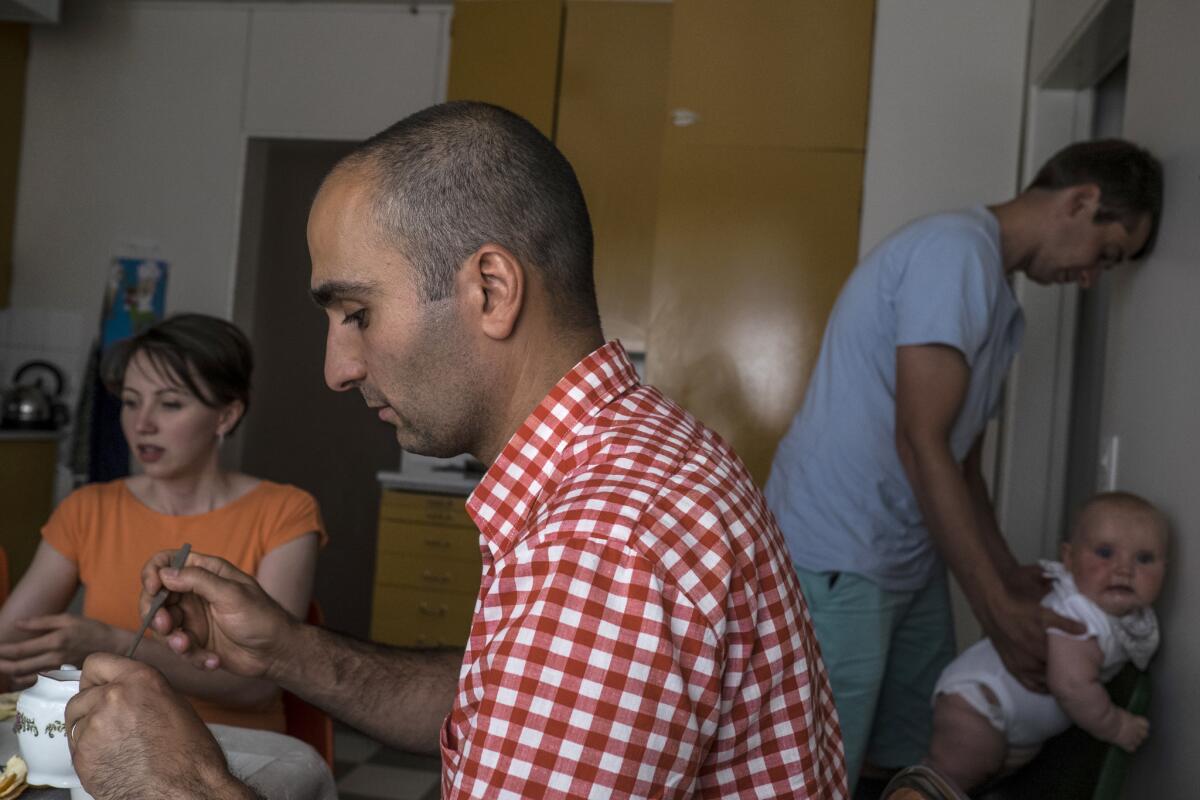
Alin and Yulia Tovmasian say they were harassed and threatened by a neighbor. One day, they said, the man attacked Alin Tovmasian with a knife. The couple called the police, who said there was no evidence of a criminal offense, Yulia Tovmasian said.
“Based on what’s going on now, even if legally they would allow us to live free again, the atmosphere will stay the same,” Yulia said. “People will continue to hate Jehovah’s Witnesses because this attitude is coming from the top.”
Jehovah’s Witnesses have been in Russia for more than 100 years. During Soviet times, they were persecuted by the Communist state and thrown in prison camps as spies or for refusing to enter the military. Jehovah’s Witnesses are opposed to military service, and discourage voting, participation in patriotic activities and flags.
The crackdown now “does coincide with this revitalization of traditional values in other ways we’ve seen in Russian politics, and with the reemergence and reestablishment of the Russian [Orthodox] Church’s influence in Russian society and Russian politics,” said Rachel Denber, deputy Europe and Central Asia director at Human Rights Watch.
The Russian Constitution guarantees freedom of religion, but emphasizes four traditional faiths — Christianity, Judaism, Islam and Buddhism. About 70% of Russians adhere to the Russian Orthodox Church, which is recognized by law as having a special status.
During his 19 years of rule as president or prime minister, Vladimir Putin has publicly courted a closer relationship with the Orthodox Church as a defining aspect of Russian identity. Experts have suggested that the Orthodox Church sees Jehovah’s Witnesses’ door-to-door preaching as competition.
Other faiths have come under pressure in recent years, including Pentecostals, Seventh-day Adventists, Hare Krishnas, and others. Despite their constitutional status, Muslims have been subjected to discrimination, according to the U.S. State Department’s latest survey of international religious freedom.
In 2016, Russia passed a vaguely worded anti-extremist law known as the Yarovaya law. The law established the premise for the ban of Jehovah’s Witnesses.
“The legal reasoning in the court ruling was that the Jehovah’s Witnesses organization asserts this supremacy of their interpretation of the Bible and the superiority of their religion over others,” Denber said. “But find me a religion that doesn’t do that.”
The Jehovah’s Witnesses have appealed Russia’s ruling to the European Court of Human Rights.
Sergei Kotelnikov, 31, fled northern Russia with his wife, Anya, 18 months ago. In the Tovmasians’ kitchen, Kotelnikov explains how neighbors in Russia called the police and the Federal Security Service, the main successor to the KGB, while his local congregation was holding a gathering. Anya, 28, was pregnant at the time. They decided to go to neighboring Finland.
“We realized that we would end up staying in a refugee camp, but we had no other options,” he said. Their daughter, Emily, was born five months after they arrived.
International pressure is mounting on Russia to reverse its ban. President Trump did not raise the issue with Putin during their summit in Helsinki, the Finnish capital, last month, but Vice President Mike Pence mentioned it at a White-House-organized gathering to advance religious freedom in June.
The Kremlin has distanced itself from the court’s ruling, saying it cannot interfere in an independent court’s decision.
“We would like Russia to have freedom in the full sense of the term,” Yulia Tovmasian said. “We have a constitution in Russia, but it turns out it’s not taken into consideration.”
Twitter: @sabraayres
Ayres is a special correspondent.
More to Read
Sign up for Essential California
The most important California stories and recommendations in your inbox every morning.
You may occasionally receive promotional content from the Los Angeles Times.
